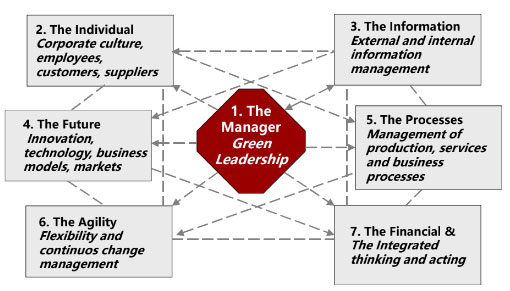SGIT-Steinbeis Global Institute Tubingen

Mr. Rolf Protrat
SGIT Steinbeis Global Institute Tübingen is a part of Steinbeis University Berlin, which is the biggest scientific private on-profit university in Germany with more than 7,000 students.
The education is based on the practically orientated philosophy since a key condition for
admission is a tripartite agreement between the university, a student, and a
company/organization in which an applicant fulfils his/her scientific project. As a part of the
‘Steinbeis family’ SGIT has access to the infrastructure and network of more than 900
organizations involved in the Steinbeis-conglomerate worldwide (i.e. institutions, research
centers, educational organizations, companies, and enterprises).
SGIT’s master program in international Management (M.A.) with emphasis on technology
management is based on the practically-orientated philosophy and the project-focused
Steinbeis philosophy. Thus, students are able to get not only theoretical knowledge but also
simultaneously, learn, test, apply and consolidate the principles, tools, and mechanisms of
the really running business processes. Further, certified courses are conducted in line with
the project-focused Steinbeis philosophy.
In order to bring latest knowledge into trainings and consultancy projects, SGIT is actively
involved in international research and R&D activities. In the past 20 years a significant
number of feasibility studies, theoretical and empirical researches, thematic
workshops/seminars/webinars with a focus on green technologies were organized and
successfully implemented. In line with research funding of the Federal Ministry of Education
and Research (BMBF) a research presence for green technologies was built up in the state
Andhra Pradesh, South India (2017-2019).
Innovation and new technologies are the key to successfully mastering the challenges of the
future. With new technologies and a new management approach of integrated management
& leadership, new solutions and ways to slow down the climate change and to increase living
standards can be created. Therefore, the concept of integrated technology management was
developed in co-operation with Export-Akademie Baden-Württemberg. The concept of
Green IMLead® Integrated Management & Leadership is bringing together the different
perspectives of technology and management. In the centre, the manager/project manager is
leading a company, business unit or a specific project (Field 1). With green leadership
competences individuals (own staff, suppliers and also the customers) have to be managed
(Field 2). External information (market and environment) and internal information (data
from processes, product data, data from infrastructure) has to be managed, too (Field 3).
Nowadays, the data management is linked to digital solutions, artificial intelligence and Industry 4.0 applications. Innovations in new technologies and business models are the main
basis to fulfil the current and future market demands (Field 4). To manage integrated waste
management systems appropriate production and business processes are necessary (Field
5). As such integrated systems are improved and developed in faster life cycles agility and
change management competences are important, too (Field 6). Finally, all activities need to
be financed and all field has to be connected in an integrated way which is reflected in the
competence of managers and scientists for integrated acting and thinking (Field 7).

Mr. Lohmueller

Figure 2: Green IMLead® concept for Integrated Management & Leadership
The Steinbeis network consists of more than 1000 trainers and experts who carry out consulting and training activities worldwide. In this way, different economic, cultural and linguistic peculiarities can be taken into account in order to conduct our training courses in
different training formats in a professional, adaptable and agile manner. This enables us to
act globally while at the same time responding to local requirements and needs.
"Innovation and new technologies are the key to successfully mastering the challenges of
the future. With new technologies and a new management approach of integrated
management & leadership, new solutions and ways to slow down climate change and
increase living standards in emerging and developing countries can be created"
Prof. Dr. Bertram Lohmüller, Director SGIT Steinbeis Global Institute Tübingen
